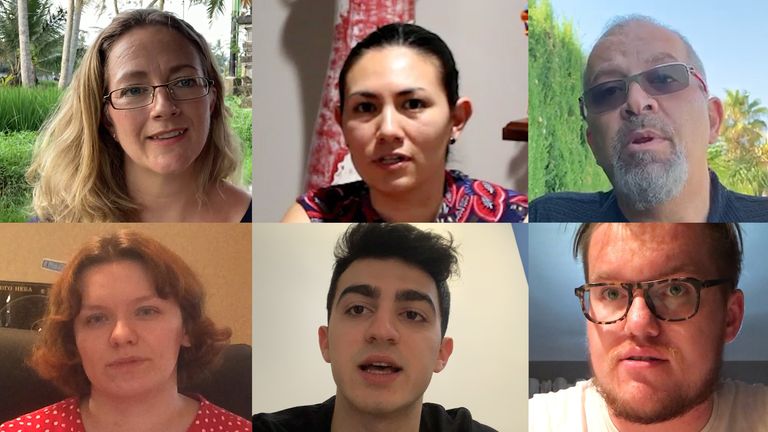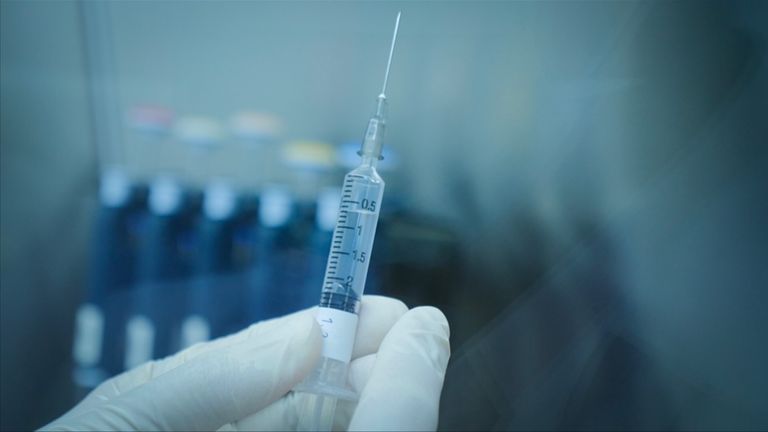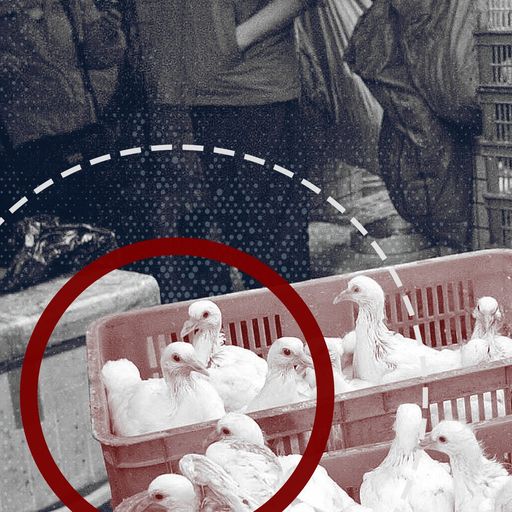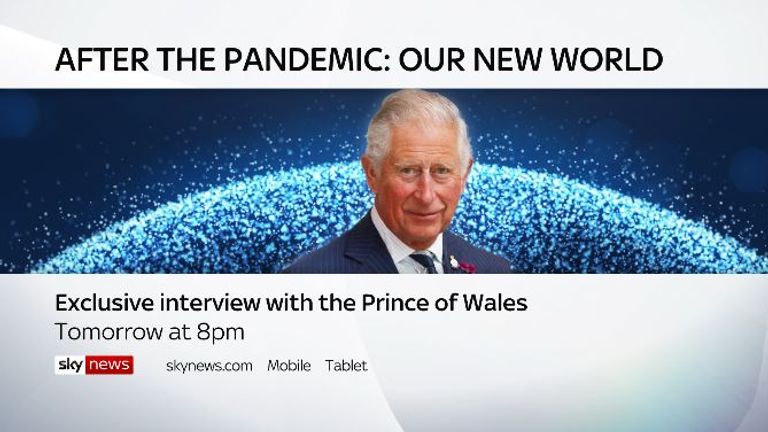After The Pandemic: 1.7 million unknown viruses have potential to infect humans
Dr Peter Daszak tells Sky News we must learn the lessons of the coronavirus pandemic and stop the next outbreak at source.
Wednesday 3 June 2020 15:29, UK
A leading scientist has warned that animals harbour almost two million viruses with the potential to infect humans.
Dr Peter Daszak, president of the EcoHealth Alliance, told Sky News that we must learn the lessons of the coronavirus pandemic and stop the next outbreak at source.
"We analysed the number of unknown viruses that could emerge in future and we estimate there are about 1.7 million of them, of the type that could infect people," he said.
"It's a really significant future threat.
"We only know of a couple of thousand viruses so the vast majority are waiting to emerge in future."
The virus that causes COVID-19 is believed to have jumped to humans from bats in China.
Studies of people living near bat caves in Asia have shown that other viruses have also infected humans but not evolved to spread further.
Dr Daszak said every effort should now be made to unravel the genetic code of viruses living in animals.
"We estimate you could do that over a period of 10 years. You could then develop drugs and vaccines.
"You would also find out where they are, and that helps local communities living on the front line of these diseases to change the behaviour that puts them at risk."
Sky News is looking at lessons we should learn from the coronavirus as part of a series called After The Pandemic.
Science has been applied to the new virus in ways that would have been thought impossible just a few years ago.
The coronavirus emerged in Wuhan just five months ago. But already scientists have unravelled its genetic code and worked out its structure, and there are 10 possible vaccines in clinical trials.
At the University of Liverpool scientists are looking for mutations in the genetic code, subtle changes that are passed on to all the copies it makes of itself as it spreads.
It allows them to track the virus from China to Europe, and then its rampage across the continent.
:: Listen to the Daily podcast on Apple Podcasts, Google Podcasts, Spotify, Spreaker
Multiple different genetic variants were introduced to the UK, particularly from Italy, Spain and France in February and March.
Such detailed understanding of the pandemic is only possible with real-time decoding of the 30,000 chemical letters that make up the virus's genetic blueprint.
Machines made by Oxford Nanopore can unravel the genetic material in a couple of hours - work that just five years ago would have taken many months.
Steve Paterson, Professor of Genetics at the university, said: "Genomics these days is absolutely central to everything in biology and everything in healthcare.
"The first tool you reach for is to sequence the genome of the pathogen that you have got.
"From there you can look at the proteins, you can decide what vaccines might be useful for it, you can design diagnostic tests and the rest follows on from that.
"It's absolutely embedded in the way in which we do science now."
Supercomputers are also helping scientists to catch up with the virus.
University College London is using a machine millions of times more powerful than a home PC to rapidly test chemical structures to see if they block the virus.
Only those highly likely to work will go into clinical studies.
Professor Peter Coveney, who is both a chemist and computer scientist at the university, said it shortcuts what used to take the pharmaceutical industry many years.
"It's really a question of being able to do things bigger, better and faster than anything you could do with lower end computers.
"The accuracy of predictions is increasing all the time with the power of the machines we have available."
Tonight and tomorrow night at 8pm, Dermot Murnaghan will be hosting After The Pandemic: Our New World - a special live programme about what our world will be like once the pandemic is over.
Thursday's programme will include an exclusive interview with Prince Charles.








